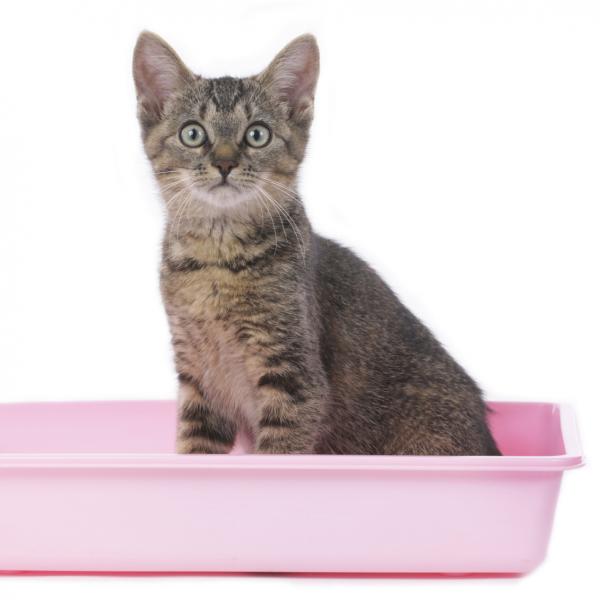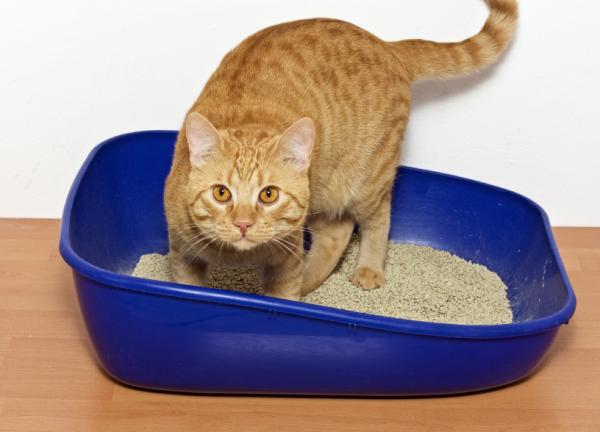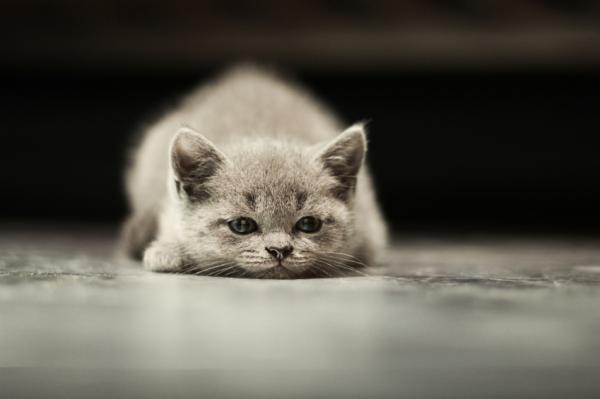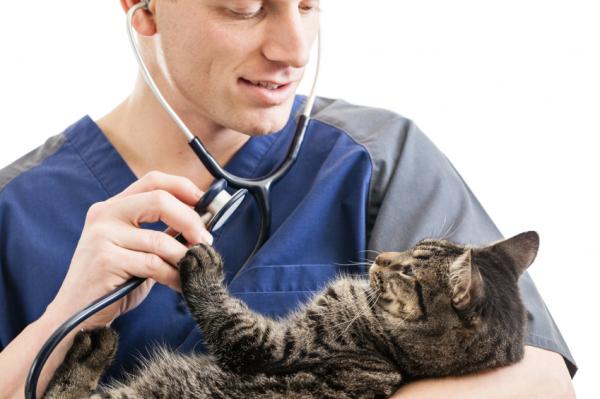My cat can not urinate – Causes

La dysuria or difficulty urinating it is a symptom that can indicate a serious or very serious pathology to the owner of cats. The difficulty to urinate is usually accompanied by a decrease in the volume of urine excreted or the total absence of urine (anuria). Both are a real emergency situation, because the filtration function of the kidney stops when the urine is not evacuated. Kidneys that do not work suppose a renal insufficiency, situation really committed for the life of the cat. So, at the slightest suspicion of dysuria or anuria, it is necessary to take the cat to the veterinarian.
In this article we will explain both how to identify dysuria and the causes that can cause the cat can not urinate. Keep reading and learn to describe to the veterinarian each of the symptoms that your cat presents.
How is dysuria in cats identified?
It is not easy to know if the cat urinates a lot or urinates little, because the amount of urine produced is never measured directly. Therefore, it is necessary that the owner is very attentive to any change in the behavior of elimination (urinating) of the cat. The details to keep in mind to detect dysuria or anuria would be:
- If the frequency of visits to the sandbox by the cat increases.
- If it increases the time that the cat is in the sandbox, as well as the meows, because the cat feels pain when trying to urinate.
- If the sand does not stain as fast as before. Abnormal colorations can also be observed in the sand (hematuria, ie, bloody color).
- If the cat begins to urinate outside the sandbox, but the micturition position is crouched (it is not marking territory). This is because the cat associates pain with the sandbox.
- If you start to have spotting the posterior third. Because the animal is longer in the sandbox, it is more susceptible to staining. In addition, it may begin to be observed that the self-cleaning behavior of the cat is less.

What causes dysuria?
The difficulty to urinate in cats is associated with pathologies of the lower urinary tract, mainly:
- Urinary stones. They can be formed by different minerals, although in the cat is very frequent struvite crystals (magnesium ammonium phosphate). Although the cause that can give rise to the calculation can be varied, it is very associated to a poor intake of water, a food with little amount of water in its composition, a high content of magnesium in the diet and alkaline urine.
- Urinary infections. Infectious cystitis and urethritis often cause inflammation and narrowing of the urinary tract, causing difficulty urinating in the feline.
- External or internal masses that press the bladder and the urethra. Tumors in both females and males, or inflammation of the prostate (uncommon in cats).
- Inflammation of penis in the cat. Due mainly to the presence of hairs that wrap around them.
- Traumatic. There may be a rupture of the urinary bladder. Urine is still produced, but it is not evacuated to the outside. It is a very dangerous situation for the cat, because it suffers the risk of acute peritonitis due to the presence of urine in the abdominal cavity.

What should I do?
The owner has to be aware that an anuria is a potential death situation of the animal in 48-72 hours, because it generates acute renal failure and can enter uremic coma in a short time, as a result of the accumulation of toxins in the organism. The more time passes between the onset of dysuria or anuria and the visit to the vet, worse is the prognosis for the animal. So, just identify that the cat can not urinate, you should go to the specialist to examine it and determine both the cause and treatment.

This article is merely informative, in .com we do not have the faculty to prescribe veterinary treatments or make any kind of diagnosis. We invite you to take your pet to the veterinarian in case of any type of condition or discomfort.
If you want to read more articles similar to My cat can not urinate – Causes, we recommend that you enter in our section of Other health problems.


